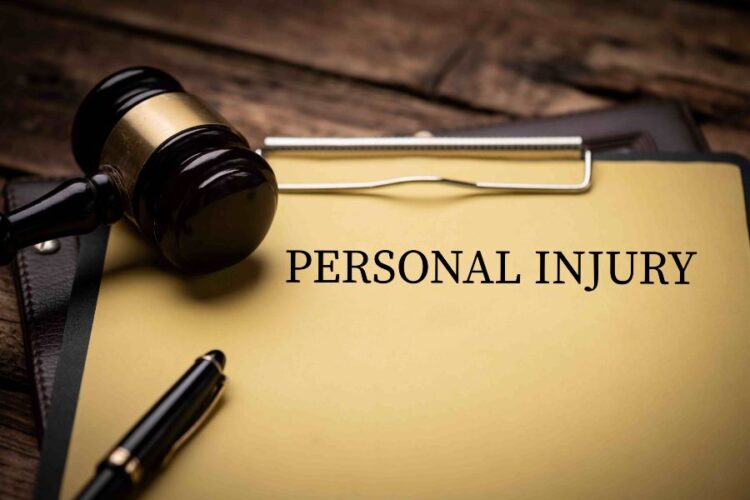You may have been injured in the line of duty, maybe in a slip-and-fall accident, or even on the road as a driver, passenger, or pedestrian. Whatever the case, you may want to file a personal injury lawsuit to get the compensation you deserve.
It might be the right approach, but that doesn’t make it as straightforward as you may expect. This guide brings you a few things you need to keep in mind before going ahead with that personal injury lawsuit.
Know Your Legal Rights
Before you take legal action, you need to make sense of the laws around personal injury claims in your state. What is the statute of limitations? Does your state follow comparative or contributory negligence rules? Are there any damage caps for personal injury cases?
Once you have the answers to that, the next step is to get acquainted with a personal injury attorney who knows the ins and outs of filing an injury lawsuit in Topeka or wherever you live. These experts can help you answer the many preliminary questions you may have.
But their partnership doesn’t end there. You can expect reputable personal injury lawyers to know the ins and outs of the specific laws and court procedures in your area. They can use their expertise to strengthen your case, as well as provide tailored advice and guidance based on their experience with similar cases. This can increase your chances of an outcome that works in your favor.
Determine Liability
Legal defense cases without negligence at the heart are a rarity. However, there’s a caveat: the onus is on you to prove that the at-fault party owed you a duty of care, breached that duty, and caused your injury as a result.
Say you slipped on a wet floor in a store. The question would be: Does the store owe you a duty of care? The answer to this is in the affirmative. As a business open to the public, the store has a responsibility to maintain safe premises for its customers. This includes keeping floors dry and free from hazards.
Second, did the store fail to uphold this duty of care? If the floor was wet because an employee had spilled liquid or mopped the area without placing warning signs, the store breached its duty of care by not addressing the hazard promptly or alerting you and others frequenting the premises.
Then, you need to ask: Did the breach directly cause your injury? If you slipped on the wet floor, fell, and suffered injuries, you can argue that the store’s failure to address the wet floor caused your harm. Medical records linking your injuries to the fall could support this claim.
Gather Evidence
Medical records, police reports, photographs of the injury scene, and witness statements all carry some weight in the context of the trial. Since this is an injury lawsuit, the medical treatment side may be most pertinent.
How severe were your injuries? What treatment did you undergo as a result? A detailed doctor’s report can take care of these questions. Then comes the finances. You need to keep track of all expenses related to the injury, such as medical care bills, lost wages, and property damage.
Calculate Damages
There are two categories of damages that you should know about. The first category is compensatory. This one covers actual losses like medical expenses, lost income, pain and suffering, and emotional distress.
Then there are punitive damages. It’s not guaranteed, but the court may sometimes decide to award you to punish the defendant for particularly reckless or malicious behavior. When calculating your damages, you may need to factor these two in.
A good practice is to turn your attention to what you’ve lost so far and how much you may end up needing somewhere down the road, be it surgeries or therapy. Your lawyer will help you with these calculations so you know how much to push for going forward.
Consider Alternatives to Litigation
A lot of injury lawsuits don’t get to trial. The involved parties settle. It’s less of a hassle and saves everyone time and resources. That said, you should keep an open mind about the approach. But that doesn’t necessarily mean settling for anything. You need to ensure that the settlement offer adequately compensates you for your losses.
Say, the insurance adjusters decide that USD$50,000 is enough for your woes. You need to ask yourself: Is that enough to cover my medical expenses, lost wages, pain and suffering, legal fees, and so on? If you find it to be fair compensation, you may consider the offer. If not, your lawyer will help you decide the best way forward.
Another alternative you may want to consider is mediation. You’ll have a neutral third-party lead the settlement negotiations to help you and the other party have an open conversation to find common ground.
The mediator’s focus would be to help you reach an amicable agreement without having to go to court. If, in the end, both these approaches miss the mark or can’t seem to get you the results you’re looking for, you can consider taking the case to trial.
Prepare for Court
If your case heads to court, you’ll go through a discovery phase. Here, both sides exchange information and evidence. The defendant’s counsel may have you called upon to answer questions under oath in depositions.
You need to be well-prepared for the process. Ask yourself: “Do I have everything I need, like medical records and photos, ready to share with the other side, and am I prepared to answer tough questions truthfully during a deposition?”
You’ll present your evidence, question witnesses (or be questioned), and make persuasive arguments to either the judge or jury. On your own, this can be quite a jarring experience, especially if you lack the legal know-how. However, if you have a competent legal representation, you wouldn’t need to worry about all this. They’ll be the ones to go to bat for you.
Closing Thoughts
Filing an injury lawsuit may be the first step towards you getting justice and the compensation you deserve. As this guide has pointed out, it can be quite a process that you cannot afford to approach unprepared.
Keep the best practices you’ve gathered here close. They could come in handy. Also, make sure you’ve touched base with lawyers you can trust. They can take you through the motions of personal injury claim trials and help you get the compensation you deserve.










